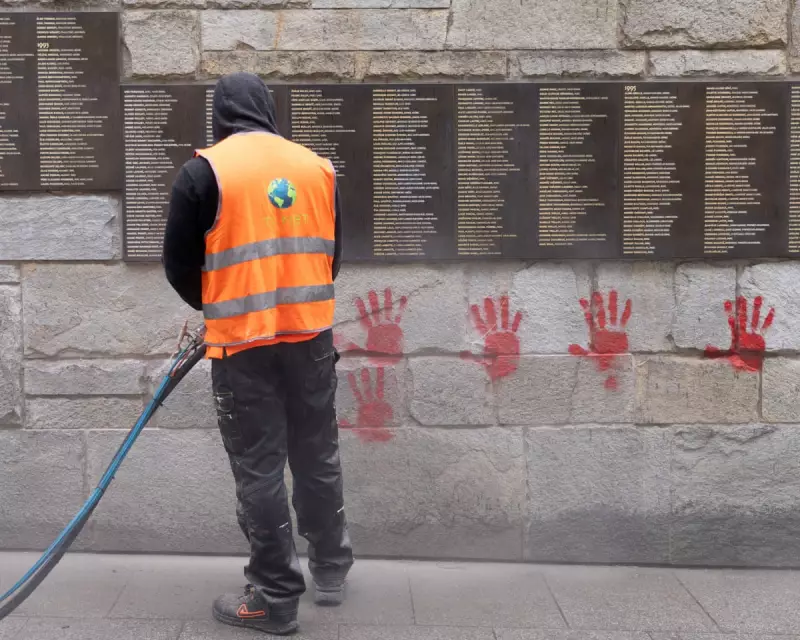
Two Bulgarian nationals have been sentenced to prison terms for their role in the shocking vandalism of a prominent Jewish memorial in Paris, amid growing evidence suggesting Russian state involvement in orchestrating the attack.
The Paris judicial court handed down sentences to the defendants, aged 29 and 27, following their conviction for defacing the Wall of the Righteous memorial at the Shoah Memorial museum. The historic site honours those who risked their lives to save Jews from Nazi persecution during the Second World War.
Coordinated Attack on Holocaust Memory
French counter-intelligence services have uncovered compelling evidence indicating the vandalism was not random hooliganism but a carefully planned operation with potential links to Russian security services. The attack, which occurred in February 2024, saw perpetrators spray-paint red hands across the memorial—a symbol investigators believe was intended to create political turmoil and sow division within French society.
Court documents reveal that French authorities suspect the operation formed part of a broader Russian campaign to destabilise European nations and undermine Western unity. The timing and symbolism of the attack suggest sophisticated planning rather than spontaneous criminal behaviour.
International Connections Uncovered
Investigators established that the convicted Bulgarians maintained communication with individuals connected to Russian intelligence operations. Mobile phone data and financial records provided crucial evidence linking the perpetrators to networks known for conducting influence operations on behalf of foreign powers.
The older defendant received a three-year prison sentence, with one year suspended, while his accomplice was sentenced to two years, with six months suspended. Both men were prohibited from entering French territory for four years following their release.
Pattern of Foreign Interference
This case emerges against a backdrop of increasing concern among European security agencies about Russian efforts to exploit social and ethnic tensions across the continent. French officials have noted a disturbing pattern of operations designed to inflame existing divisions within Western democracies.
The sentencing marks a significant development in Europe's ongoing confrontation with foreign influence operations, demonstrating both the vulnerability of public memorials and the determination of authorities to combat state-sponsored destabilisation campaigns.
Security experts warn that cultural and historical sites have become soft targets for actors seeking to provoke social unrest and test the resilience of democratic institutions. The case has prompted calls for enhanced protection of vulnerable memorials and closer international cooperation in countering hybrid threats.





